Waiting without end
Greece-Macedonia border, March 11, 2016 -- The waiting, the lack of information and the horrible conditions. That’s what struck me most during this assignment.
I spent 12 days photographing the refugees camped out on Greece’s border, hoping to enter Macedonia and from there make their way into Western Europe along the so-called Balkan route.
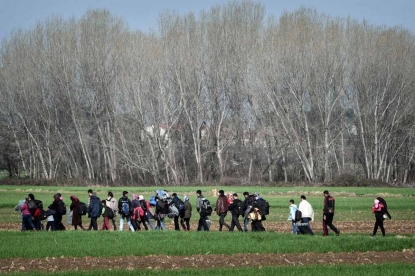 (AFP / Louisa Gouliamaki)
(AFP / Louisa Gouliamaki)But the border was only opening for just a few hours at a time, so a huge number of people had gathered, there was between 10,000 and 14,000 while we were there.
Because the border only opened for a few hours at a time, people were sleeping in front of the gate because they didn’t want to lose their place in line. It was just crazy, especially after the rain started. Mud, cold, rain, babies crying.
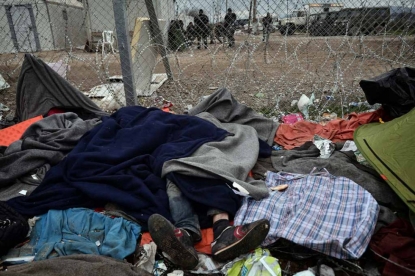 (AFP / Louisa Gouliamaki)
(AFP / Louisa Gouliamaki)Inhumane conditions
There were too many people, with babies, crammed in tents. The conditions from the health point of view -- and any other point of view I would say -- were just completely inhumane.
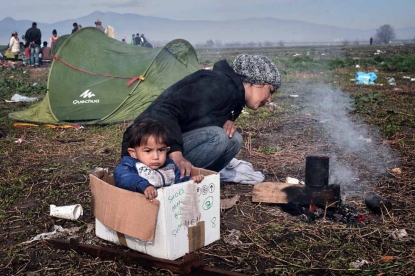 (AFP / Louisa Gouliamaki)
(AFP / Louisa Gouliamaki)You just saw this basic instinct of survival. People would just concentrate on basic things and left the other things behind. The tents were near the toilets. It was smelly, stinky. Some people were so afraid to leave -- they never knew when the border would open and for how long and how many people would pass -- that they wouldn’t even get food.
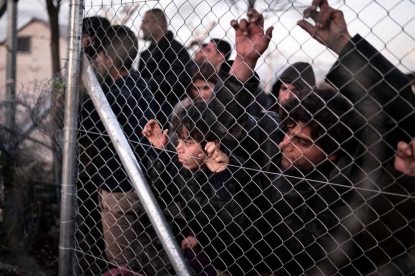 (AFP / Louisa Gouliamaki)
(AFP / Louisa Gouliamaki)They just sat there, waiting. Waiting and hoping. Hoping and hoping and hoping that the border would open and they could pass through. They gave up on everything else just in the hope that maybe there was a place to go.
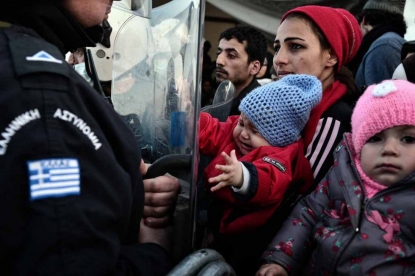 (AFP / Louisa Gouliamaki)
(AFP / Louisa Gouliamaki)And because there were so many people there wasn’t enough of anything. There weren’t enough aid workers. There weren’t enough tents.
Another striking thing was the complete lack of information. People just didn’t know anything. They didn’t know when the border would open, or if it would open at all. Because of this and because there weren’t enough aid workers, they would turn to us.
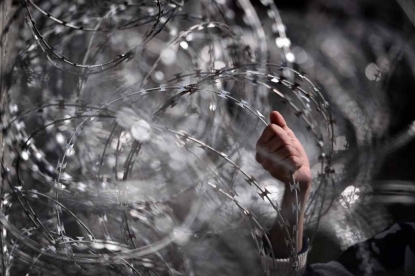 (AFP / Louisa Gouliamaki)
(AFP / Louisa Gouliamaki)People would come to me with their problems to see if I could help. Most of them can’t speak English. I can’t speak Arabic. But we all tried. You talked to people and you tried to help them in any way you could, to at least to show that someone cares about them.
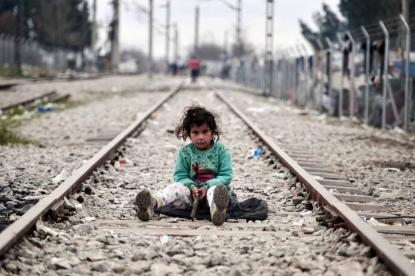 (AFP / Louisa Gouliamaki)
(AFP / Louisa Gouliamaki)When we were first arriving, we met an Afghani family. They had walked for 13 hours, the woman carrying her toddler of about a year and a half the whole way. They were burnt by the sun. They had walked to the border, but were turned away. We met them walking back on the road. They didn’t know what to do, where to go. And there was nothing that we could do for them. Absolutely nothing. They were just lost.
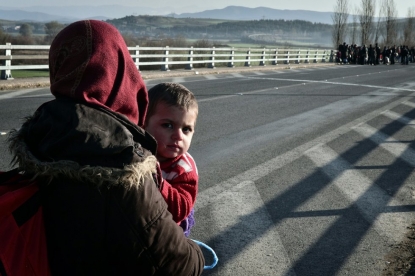 (AFP / Louisa Gouliamaki)
(AFP / Louisa Gouliamaki)'What else can I do?'
One day I saw a young woman in a tent, writing. It really struck me, as that was not something that you saw normally. You normally saw people taking care of basic needs, not writing. So I started talking to her. She was from Aleppo and spoke perfect English. I asked her why she was writing and she said “what else can I do?”
And then she asked, “please if you have any news, please tell us the truth, what would be the best thing for us to do." What could I tell her? I couldn’t really help her much. But it was so nice to find a person who in other circumstances could be your friend. I got her phone number and will follow up. When we met she had just been there for five days. Others had been waiting for 19-20 days.
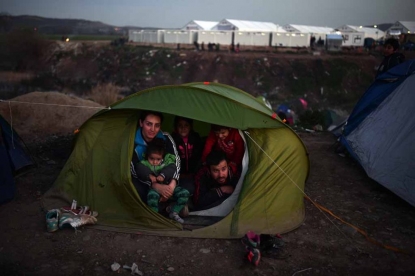 (AFP / Louisa Gouliamaki)
(AFP / Louisa Gouliamaki)Another image that has stayed in my mind is a little girl who was clutching an old, big shoe like a toy.
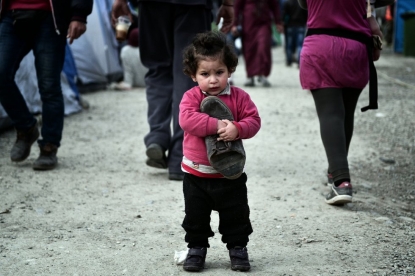 (AFP / Louisa Gouliamaki)
(AFP / Louisa Gouliamaki)On a professional level, when you first get there, you are excited about the assignment. Then gradually, you get more and more involved. You try to do more and more things for the people, to get them some information -- at this spot, you can get bread at this time of the day, at that spot, you can get blankets. The people are very appreciative of this type of information.
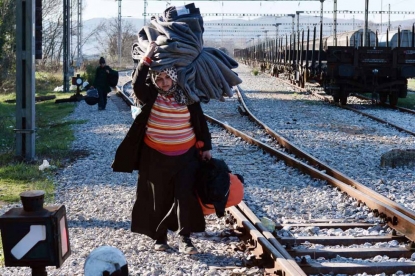 (AFP / Louisa Gouliamaki)
(AFP / Louisa Gouliamaki)So whether you want to or not, you start to get involved. Then you get to know people, you start seeing them again and again. You become part of the story.
But after a while, you have to leave because you need to clear your head. The day we left it was raining again and picture-wise the conditions were amazing. But the decision was that it was better to go, we had been there enough.
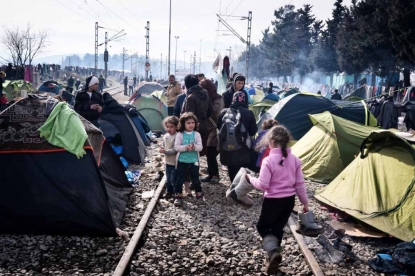 (AFP / Louisa Gouliamaki)
(AFP / Louisa Gouliamaki)Some thought that (German Chancellor Angela) Merkel is waiting for them and everyone else is stopping them. Others thought that Germany was paying Macedonia to close the borders.
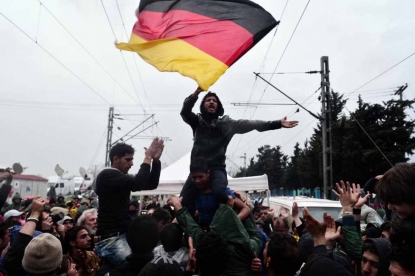 (AFP / Louisa Gouliamaki)
(AFP / Louisa Gouliamaki)Lots of people told me, “we would go back, but we have nowhere to go, what will happen to us. Let’s wait here and hope for something.”
Louisa Gouliamaki is an AFP photographer based in Athens. Follow her on Twitter.
This blog was written with Yana Dlugy in Paris.
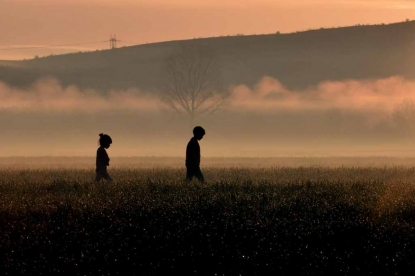 (AFP / Louisa Gouliamaki)
(AFP / Louisa Gouliamaki)
